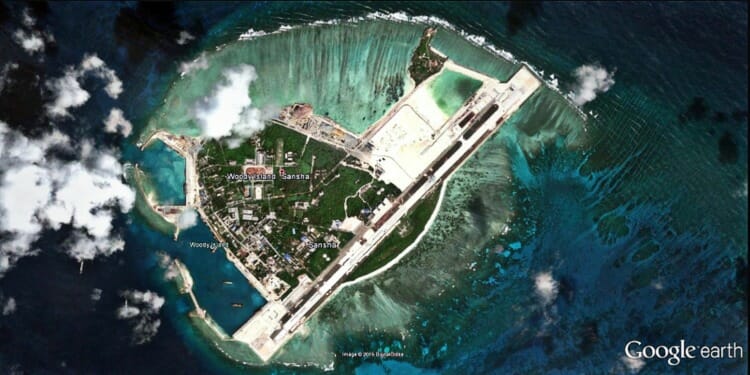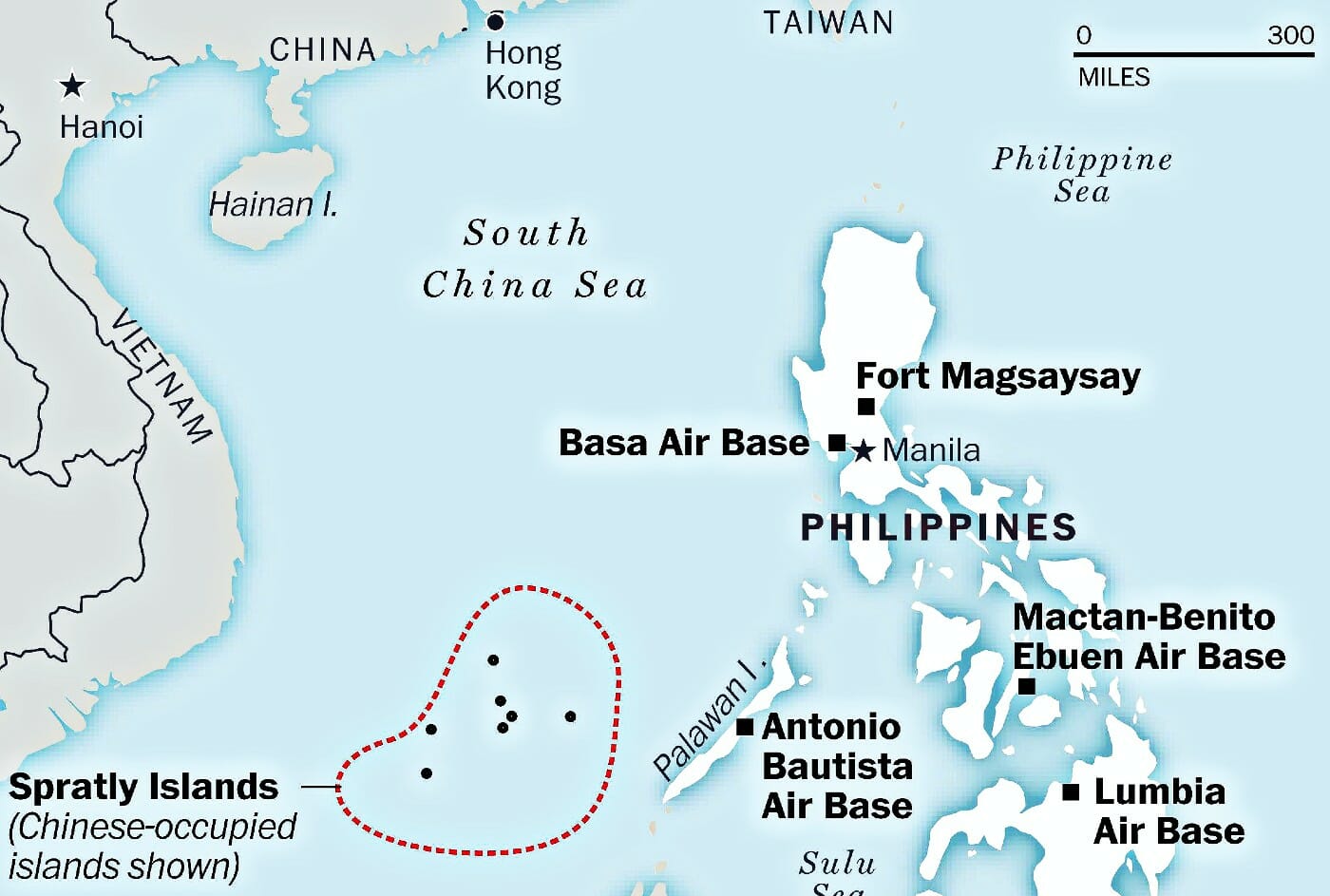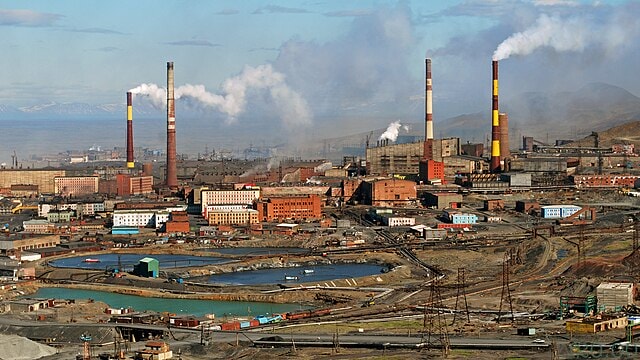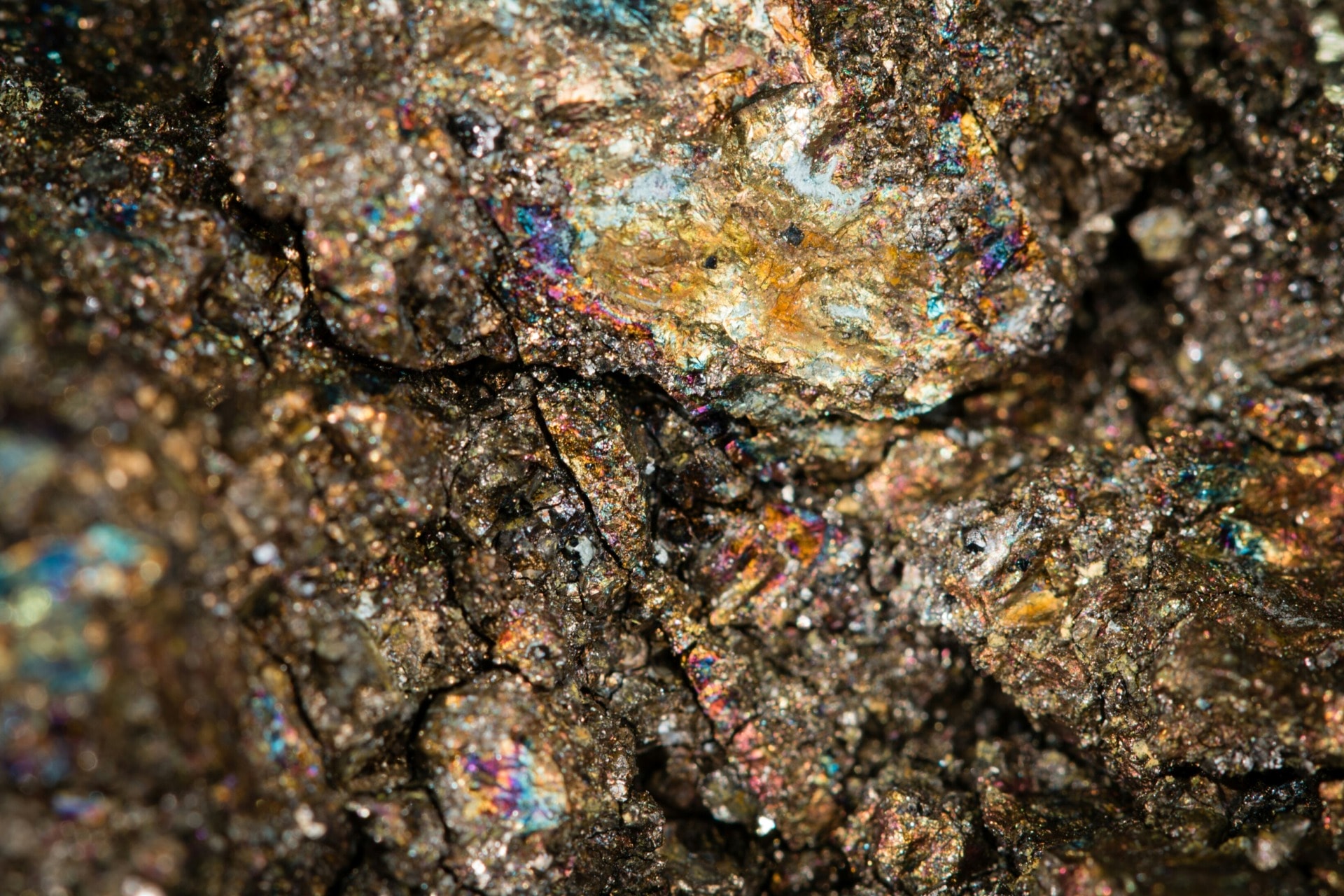Updated September 18, 2021 – The situation is rapidly deteriorating in the Indo-Pacific region, this time the areas at risk are the South China Sea and the Taiwan Strait. The latest catalyzing event has been the announcement on Thursday of a new security alliance between the U.S., Australia and the U.K. – termed Aukus – and clearly intended to counter China’s influence in the region. Aukus has surprisingly left out France, an ally of the U.S. and Australia; with the latter, France had a contract for the sale of its submarines that was rescinded. Seen as a slap by France, the recall of its ambassadors from both countries was announced today. Many observers believe it will be also seen as a smack from the U.S. by the 27 members of the European Union and mark yet another faux-pas by the Biden Administration in its dealing with European allies.
This caused an instant reaction from China, seeing this as yet another move in the geopolitical chess game it is playing with the United States. Liu Pengyu, the Chinese embassy spokesperson told the UK Guardian, that countries “should not build exclusionary blocs targeting or harming the interests of third parties. In particular, they should shake off their cold war mentality and ideological prejudice.”
Predictably, the International Campaign to Abolish Nuclear Weapons (Ican), the winner of the 2017 Nobel peace prize, was quick to point out on Thursday that Aukus was a move in “the wrong direction at the wrong time”.
The Aukus security pact is clearly a step forward for the US in the region and a way to quickly put Afghanistan behind. For the UK, it is also a step forward as Prime Minister Johnson needs something to put Brexit behind and claim that the country is back on the global stage.
The UK, Australia and the USA are forming a new trilateral defence partnership that will preserve security and stability around the world.
It will also create hundreds of high-skilled jobs across the country, driving forward our levelling up agenda.#AUKUS https://t.co/W1MibdaBDc
— Boris Johnson (@BorisJohnson) September 16, 2021
For Australia? It’s a better deal as it will be getting better, more advanced submarines. And while Australia cannot carry nuclear weapons on its submarines, it can now open its ports to nuclear weapon-wielding submarines from the US and the UK.
Oddly the Aukus security pact leaves France out of the deal, even though France had been into a security pact with Australia since 2016 to furnish submarines. As a result, Australia has scrapped the $66 billion contract it had with France – much to the dismay of the French government.
What exactly happened? Let’s take a step back to understand how we got here.
How the factors at play in the region make the South China Sea Pivotal
The Indo-Pacific region has long been facing expansionist pressures from China at all levels: military, trade and economic. There are two driving factors behind China’s push in the region: One is its Belt and Road Initiative that has brought Chinese influence not only in the region but across the world, the other is its historic claim over Taiwan. For geopolitical reasons, all factors come at play together in the South China Sea.
China cannot accept Taiwan’s claim to be an independent state, and as China is part of the UN Security Council, it has exercised a heavy hand in the matter. One of the consequences of China’s hefty global presence is that very few countries dare recognize Taiwan as a sovereign state.
On the political and economic front, China is wielding three major weapons across the region:
- Political cooperation since 2001: The Shanghai Cooperation Organization, created with most of China’s Asian neighbors in Central Asia, plus Russia; with the recent addition (in 2017) of India and Pakistan, it is known as the “Alliance of Asia”;
- Economic investments since 2013: The Belt and Road Initiative (BRI), since it was unveiled by Xi-Jinping in 2013, has made huge progress on both its fronts, building land and maritime corridors all the way to Africa and Europe;
- Infrastructural investments since 2016: The Asian Infrastructure Investment Bank, with now 86 “approved members”, including European countries (but not the US and Japan) and a long list of approved “sustainable” projects mostly in Asian countries.
On the military front, China is building up its presence in the South China Sea. First with the construction of artificial islands to serve as logistical support. So far, over 3,000 acres of artificial islands – the Spratly and Paracel islands – were created for industrial and military purposes, causing dismay not only among political scientists but also environmentalists who fear that as much as 2,000 acres of coral reef have been damaged.
The Spratly Islands have always been a highly contested area with all neighboring countries, Vietnam, the Philippines, and Taiwan, laying claim to them in addition to China. As far back as 1987, China had installed a marine observation station on the Fiery Cross Reef (677 acres) and in 2015 it sent military troops to it, turning it into one of several military bases.
From that time, China has expanded its presence on various contested islands without anyone stopping it. China now has large bases in the Subi, Mischief, Fiery Cross and Woody Island with the necessary military infrastructure. Thus, with the power of its missiles, radars and aircraft, China has extended its reach across the whole of the South China Sea.
Some observers caution however that this Chinese military presence is not a real threat. Dr. Robert Farley, a security expert and author of several books, sees China’s military bases as a “total paper tiger”. He acknowledges that the islands “have some military relevance, but are more important as a political claim to waterways and undersea resources.” This is the old theory that China is not interested in war but in economic expansion.
The situation is most dangerous with respect to Taiwan as the air force of China’s People’s Liberation Army makes almost daily sorties over the Taiwan Strait. Most recently, on September 5, it was reported that 19 Chinese aircrafts had flown into the Taiwan defense zone, the largest such sortie in weeks and it included an anti-submarine aircraft and four H-6 bombers, which can carry nuclear weapons. The fear is that real confrontation could occur whenever Taiwan engages in its annual war games exercises.
But the situation is also tense with Australia. Recent economic disputes have damaged relations between the two countries over the past two years. In May this year, China slapped an “anti-dumping” 80 percent tariff on Australian barley, and later took aim at major Australian exports, unofficially banning eight products, including copper, timber, wine, lobsters, sugar and coal. Australia of course retaliated, tearing up a BRI contract with the state of Victoria. In short, a trade war.
The real story behind the Aukus Security Pact
Facing pressure from China, Australia entered into a submarine pact with France five years ago – and now, with Aukus, it suddenly abandons France. This raises the interesting question: Why not keep France in the picture? France is an ally, so why treat it this way?
Tearing up the contract with France has the expected result, deeply angering the French government, as it put an end to the $66 bn contract Australia had made with the French company Naval Group in 2016 to replace its aging Collins-class submarine fleet. Both the French foreign minister, Jean-Yves Le Drian, and the defense minister, Florence Parly issued a joint statement accusing Australia of “ going against the letter and the spirit” of the deal” and stating that “The American choice to push aside a European ally and partner like France from a structural partnership with Australia at a time we are facing unprecedented challenges in the Indo-Pacific region … shows a lack of coherence that France can only acknowledge and regret.”
However, the story is more complicated. Gérard Arnaud, former French Ambassador to the U.S. and Israel, threw a new light on what might have really happened, tweeting today:
Who wants to drown a dog says it has rabies. Australia didn’t cancel the F35 deal…. Delays and difficulties are inherent to such a complex deal. But nothing to justify such brutal move. https://t.co/M92RyWObpr
— Gérard Araud (@GerardAraud) September 16, 2021
So, if the deal was scrapped, this was not done out of political intent or misplaced animosity. It was simply the result of poor management decisions on the part of the French company that did not (apparently) live up to its commitments. Delays in delivery and other problems caused the withdrawal of Australia from the deal. Reportedly, the U.K. and the U.S. simply offered a better deal.
Australia’s next step? Just five hours after joining the Aukus security pact, Australian Prime Minister Scott Morrison has sent an “open invitation” to China’s Xi-Jiping for “talks”, saying he is ready to hold discussions with Xi.
And if you wonder why New Zealand is nowhere to be seen in all these political games, there’s a very simple reason. For more than three decades now, New Zealand has prohibited nuclear-powered vessels from its sovereign waters. And now it has once again confirmed that it would continue to ban nuclear submarines from entry and that there would be no exception for Australia.
Editors Note: The opinions expressed here by Impakter.com columnists are their own, not those of Impakter.com
Featured image: Chinese military base on Woody Island, South China Sea Source: Google Earth image














